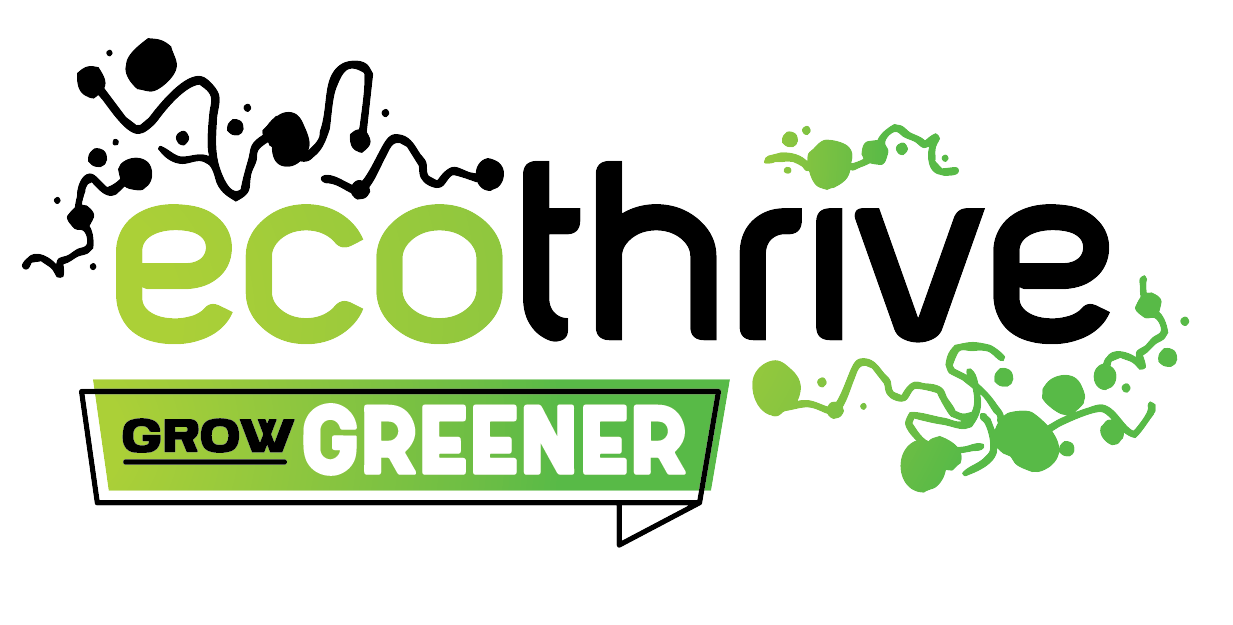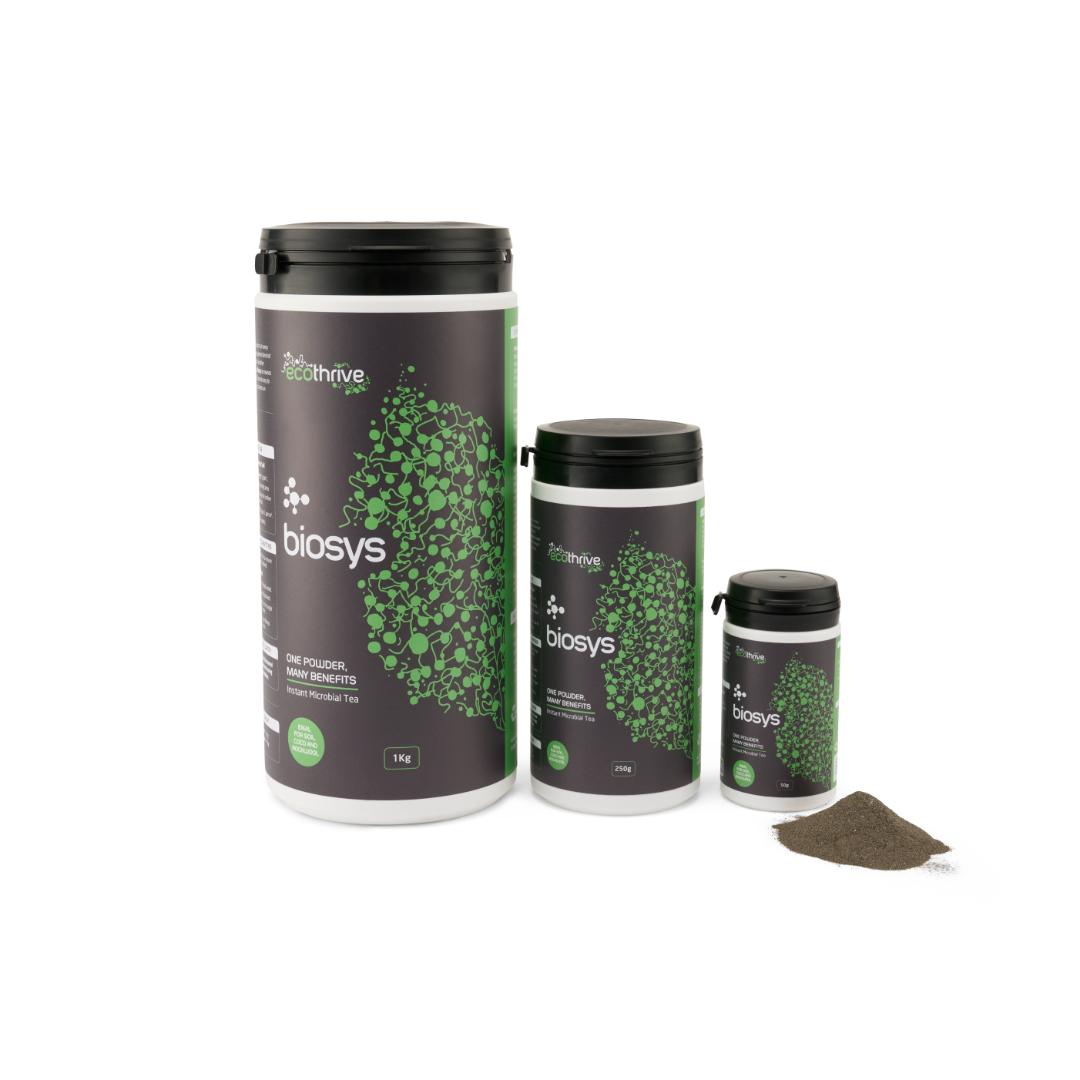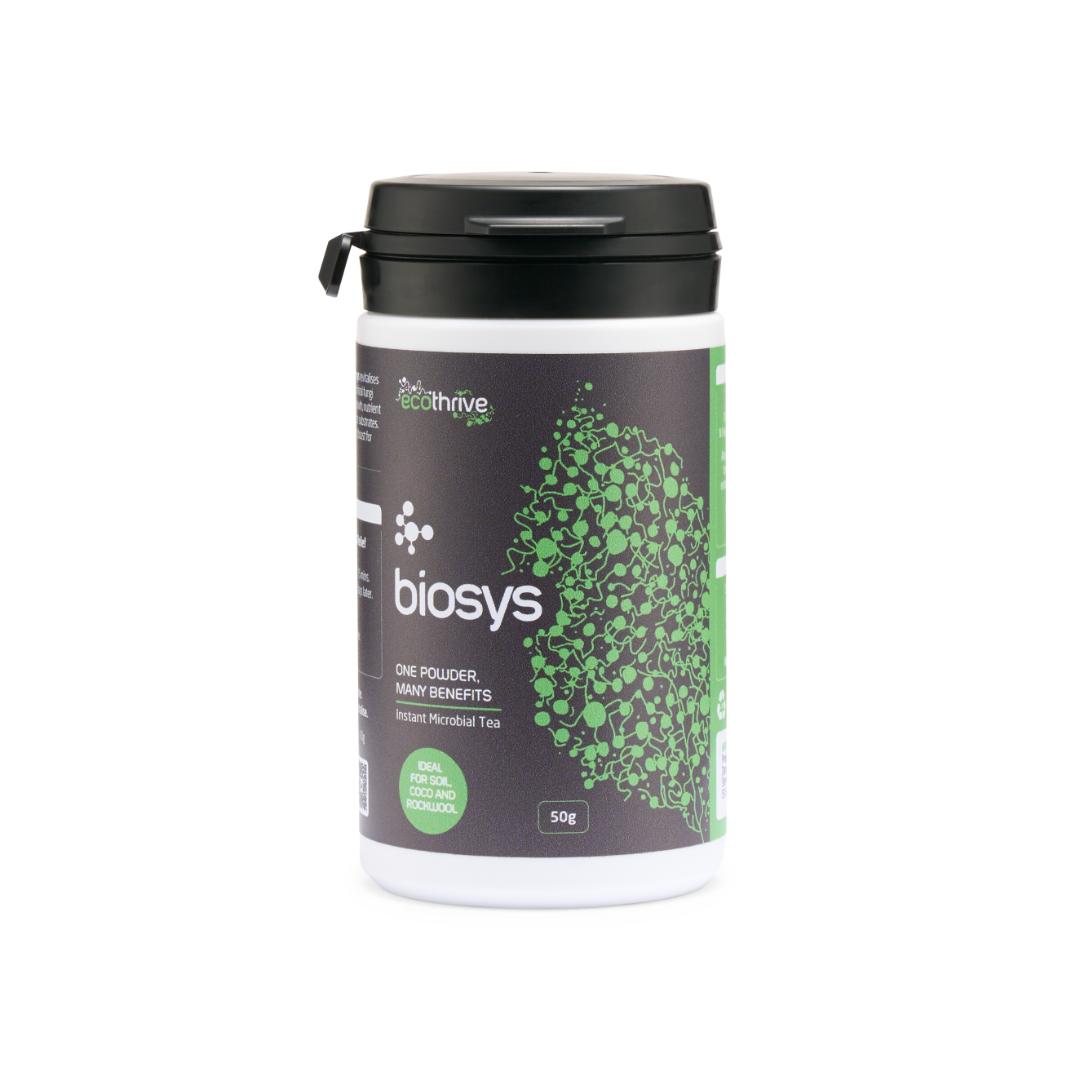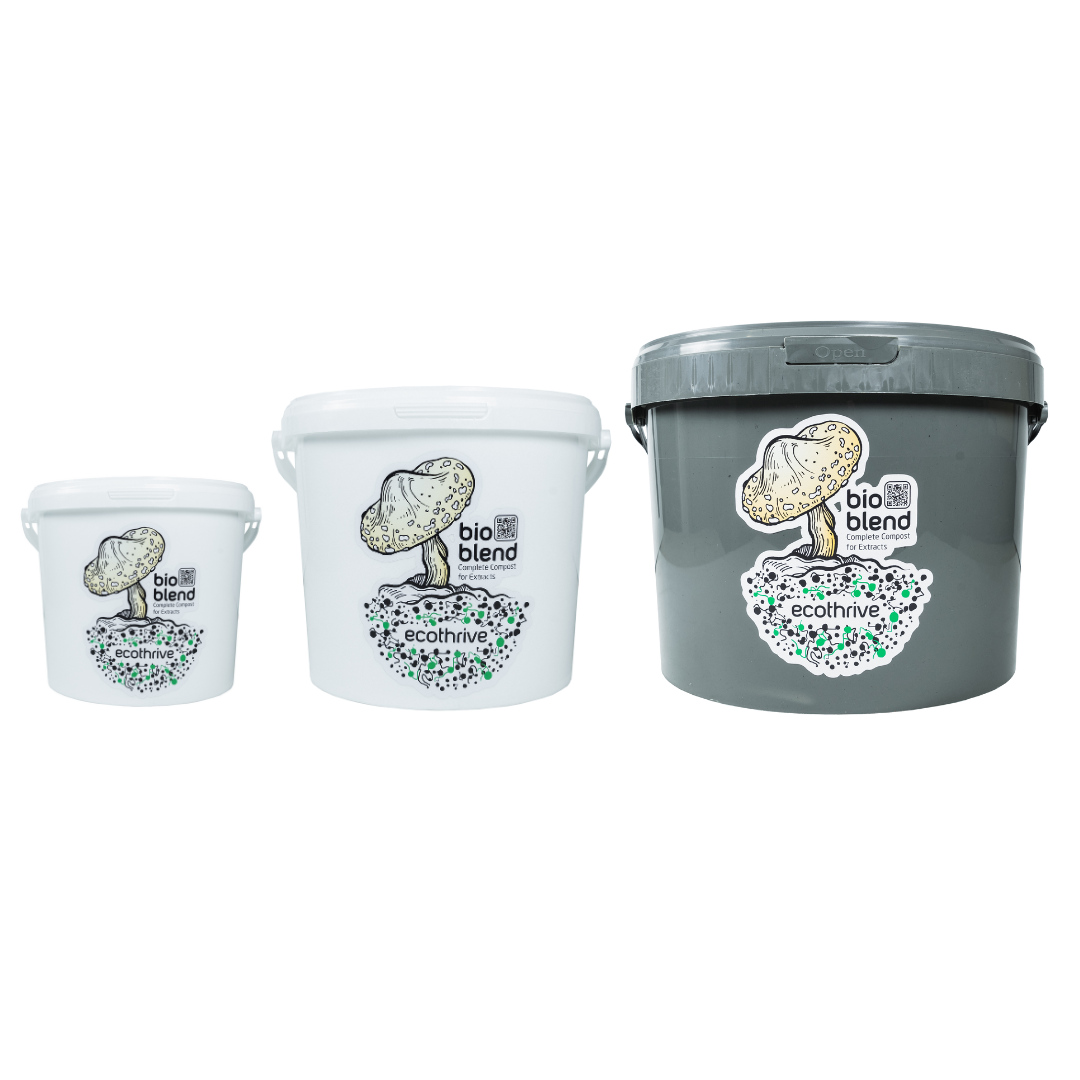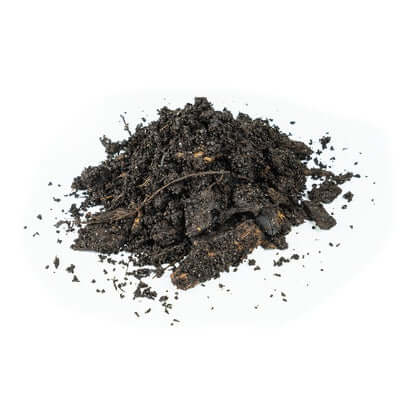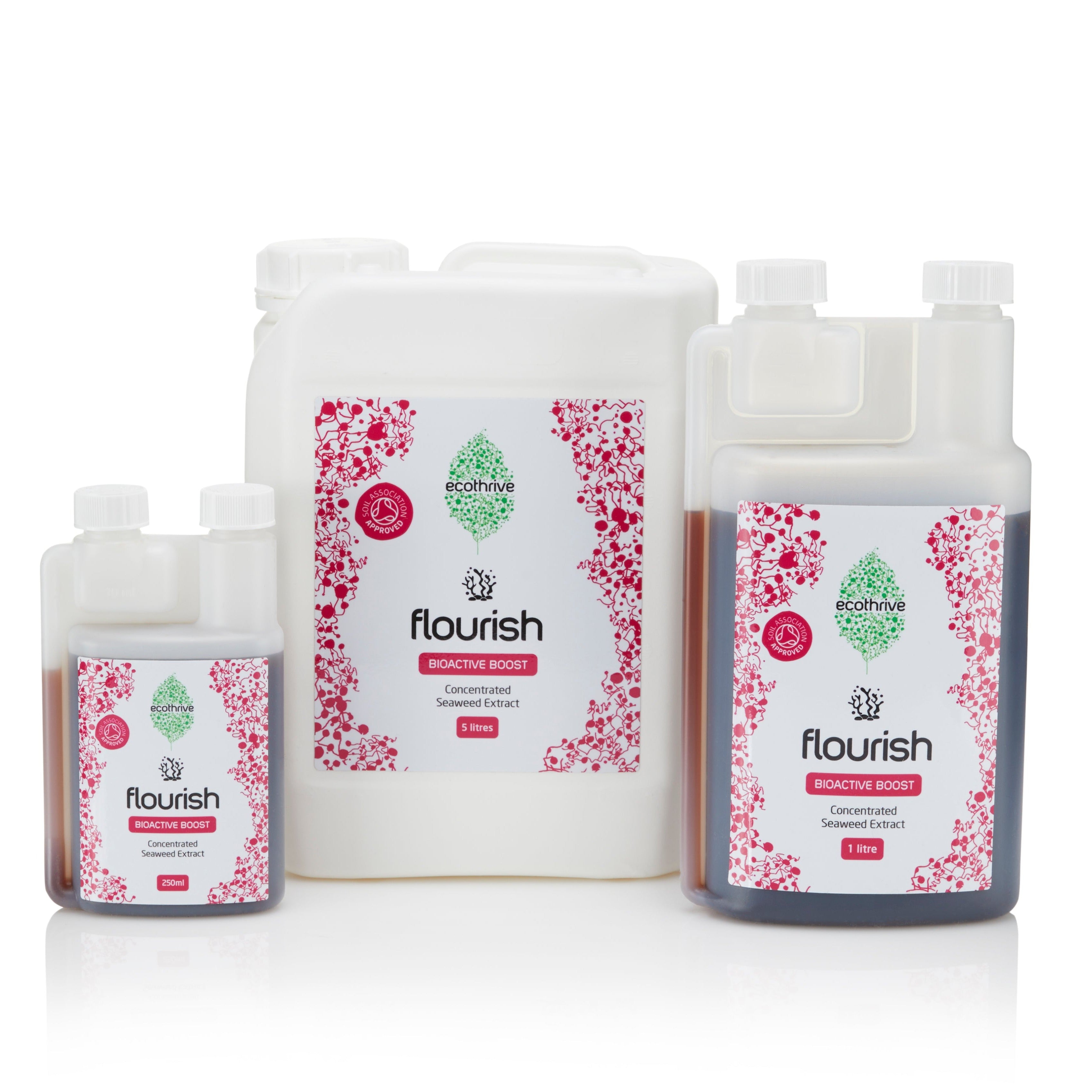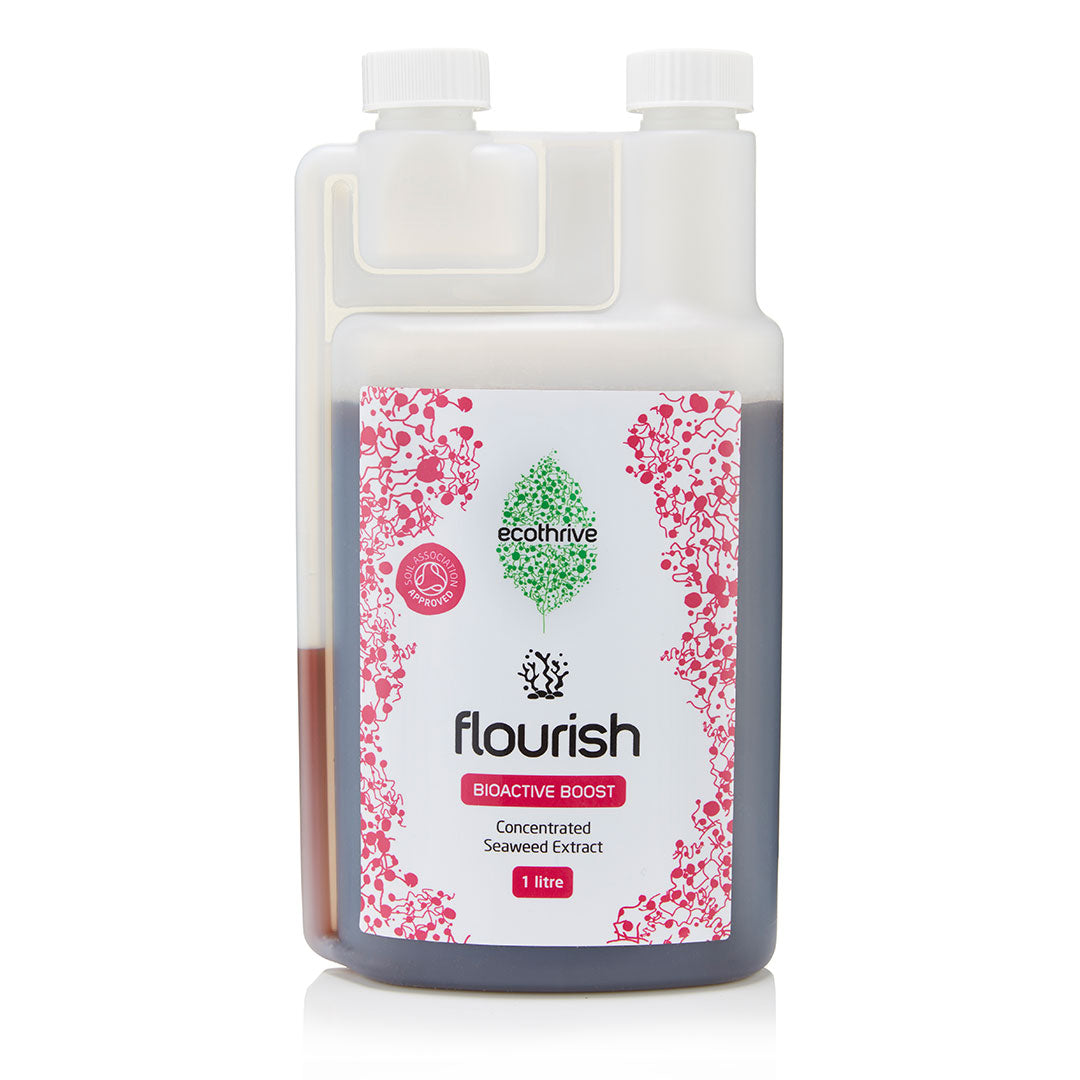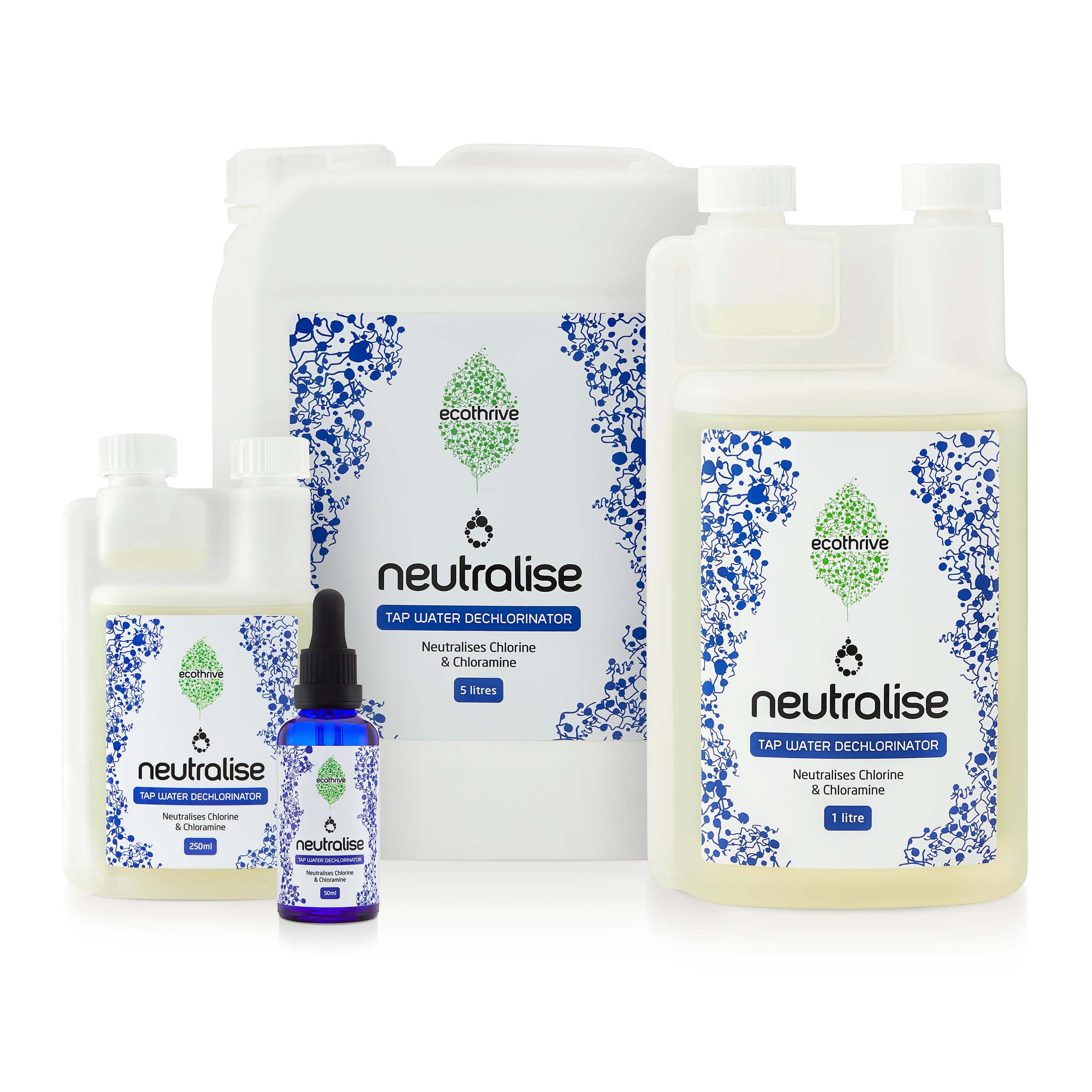
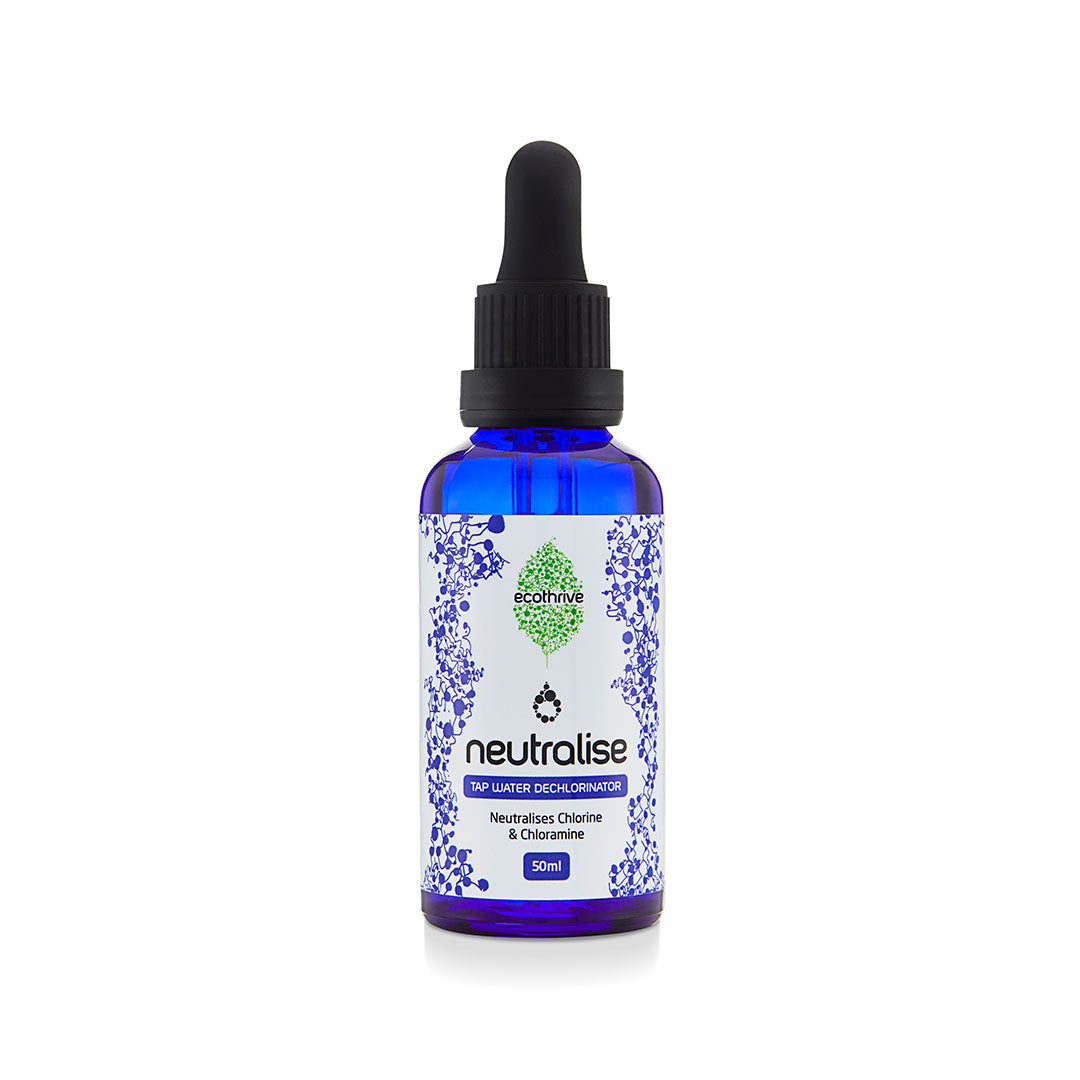
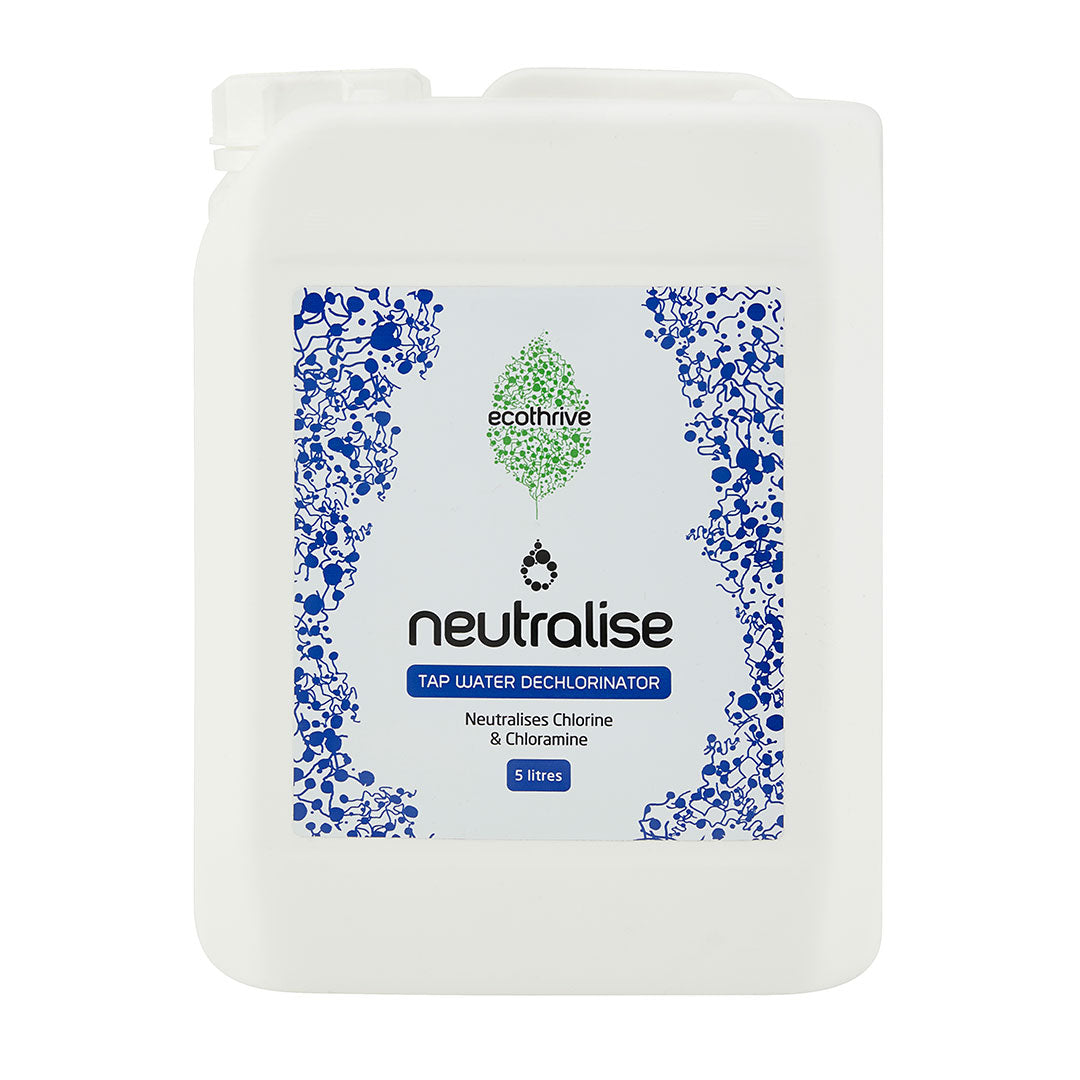
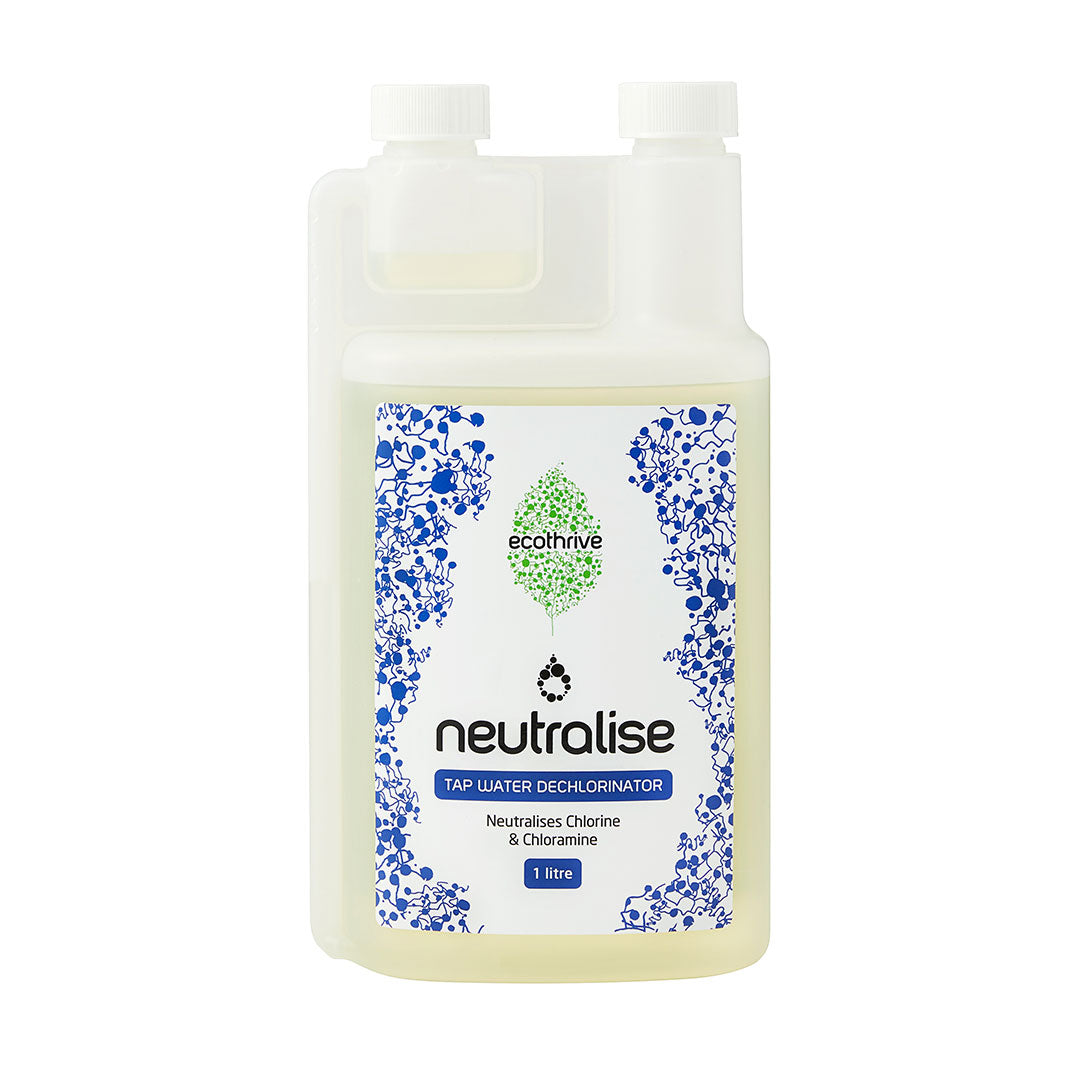
Neutralise
Condition your tap water so beneficial microbes can flourish
Ecothrive Neutralise is our quick, simple and cost-effective way to improve the quality of your tap water by instantly removing chlorine and chloramine. No need to let your tap water stand for 24-hours or to invest in expensive filtration equipment. Just add a few drops of Neutralise and you’re good to grow!
Tax included. Shipping calculated at checkout

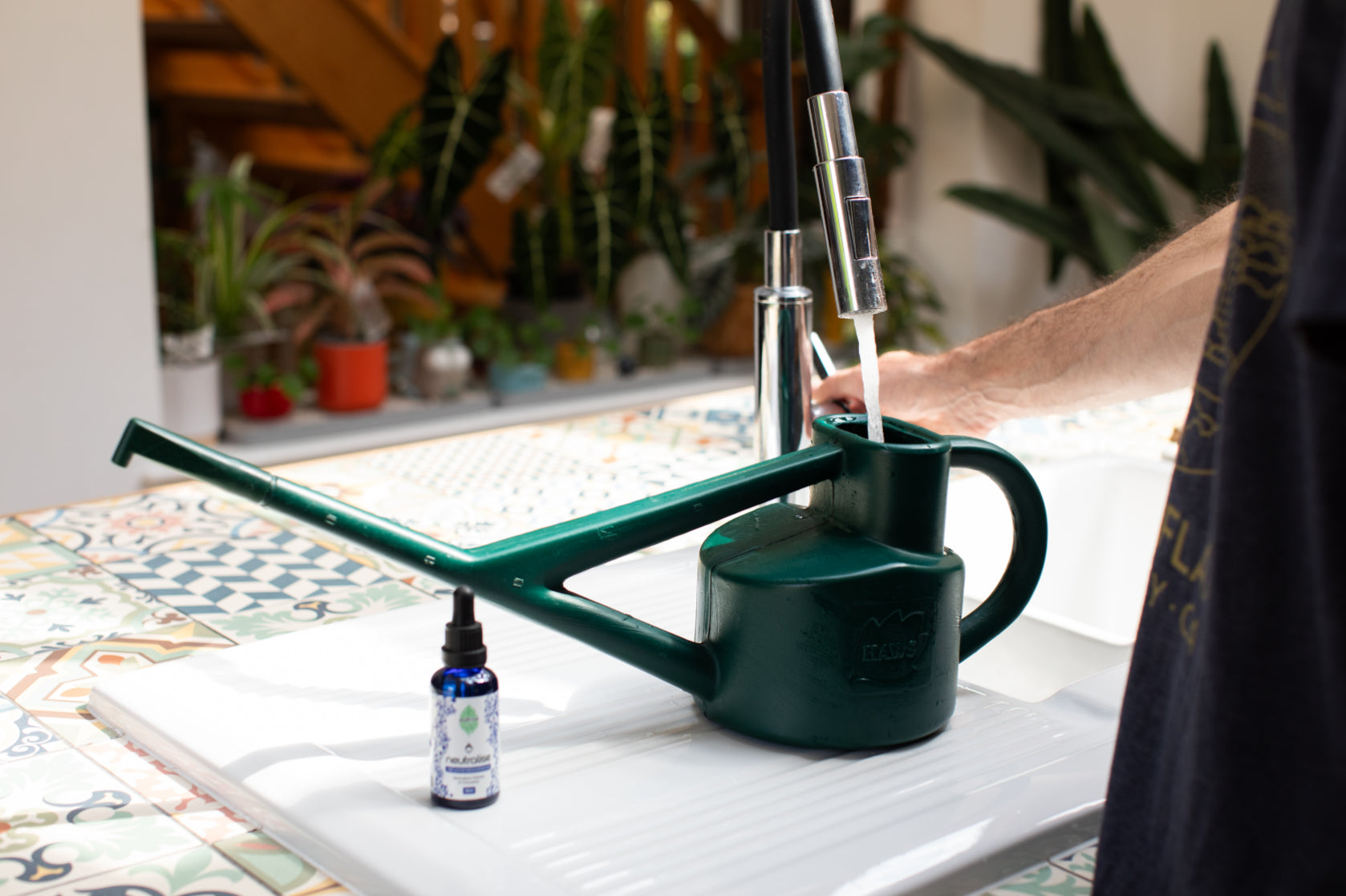
Healthy root systems start with good quality water. However, tap water across the UK contains chlorine and chloramine—powerful disinfectants that help to keep our tap water safe to drink. The problem is when these disinfectants come into contact with plants and attack the beneficial biology in and around the roots, potentially lowering nutrient uptake and the effectiveness of microbial products such as Biosys.
Reverse osmosis water purification can be expensive, time-consuming and wasteful—and the ‘old method’ of letting tap water stand for 24-hours is no longer valid as many municipalities have switched to the more persistent ammonia-based chloramine.
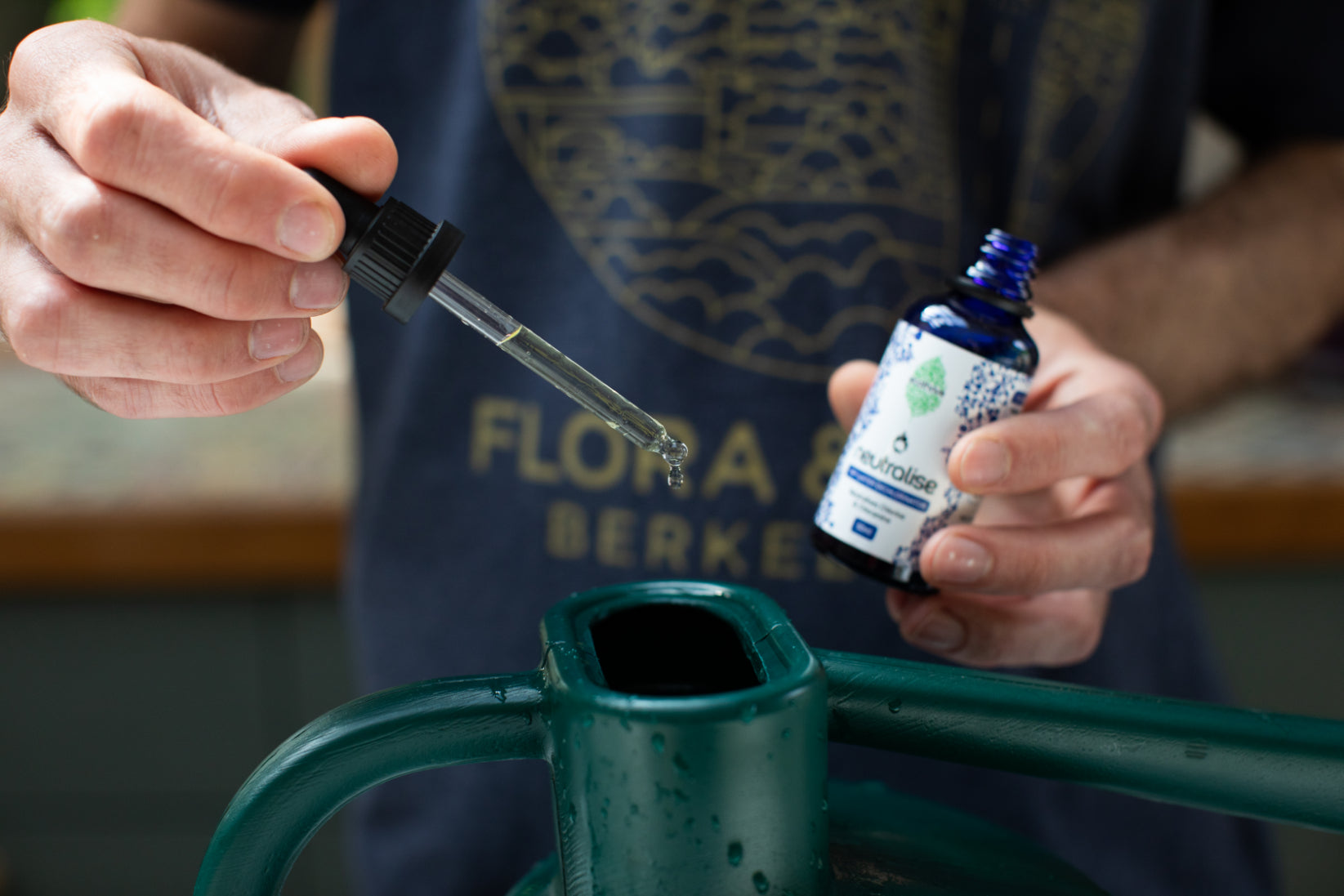
Just a few drops of Neutralise and your tap water is ready to use. Neutralise helps growers to optimise the health of their soil and is also beneficial to coco and hydroponic growers as a pre-treatment for irrigation water and nutrient solutions.
Neutralise has been formulated to actively target the presence of chlorine and chloramine in tap water.
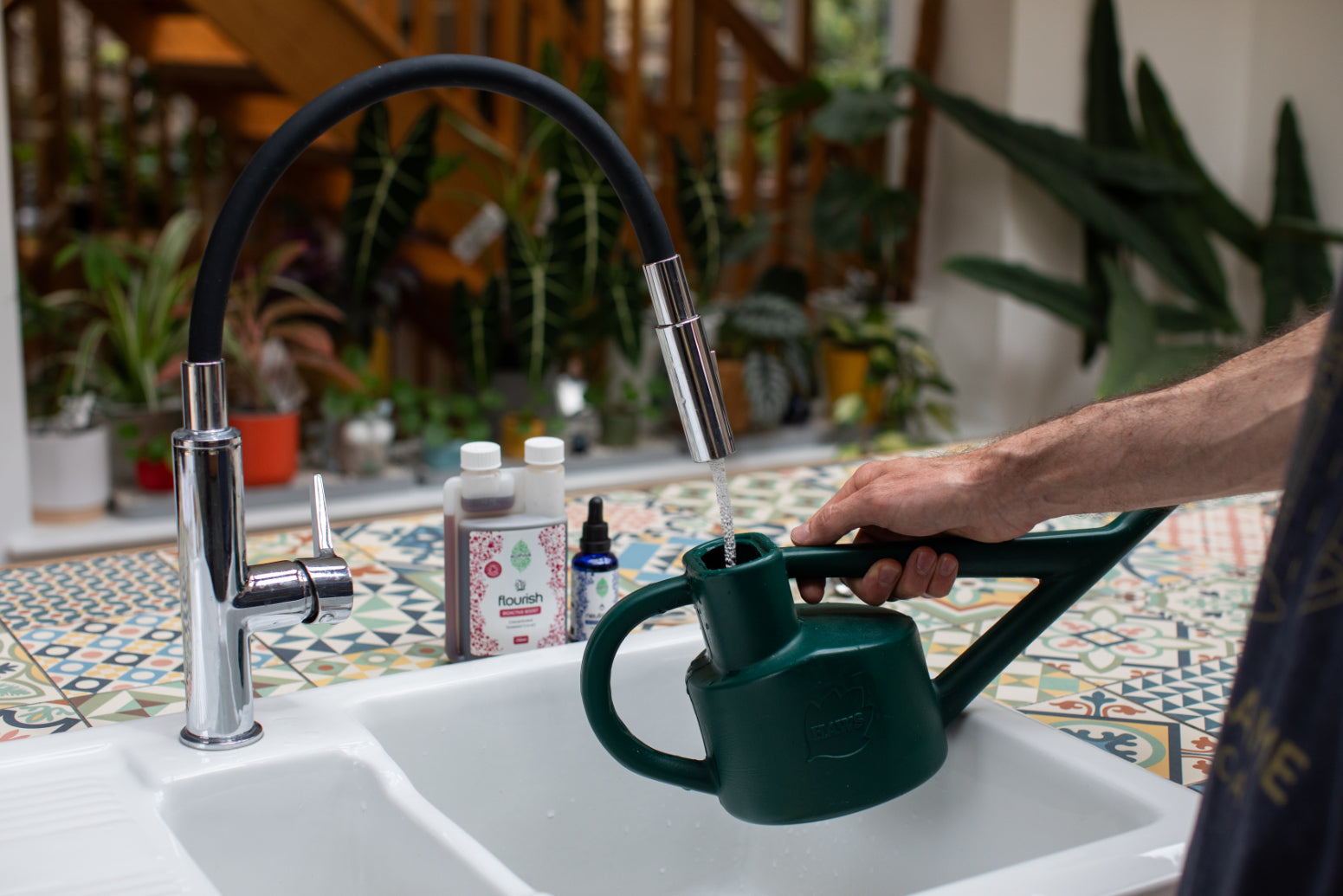
Chlorine compounds are very reactive, killing microbes by oxidation. They will readily oxidise enzymes, proteins, bacteria and other living microorganisms. Unfortunately they do not distinguish between the "bad biology" and beneficials, so chlorine and chloramine can potentially knock back the crucial development of the microbiome in your growing media.
The active ingredient in Neutralise is concentrated Vitamin C, a totally safe ingredient for your soil and plants. When Neutralise is added to chlorinated water, the Vitamin C is rapidly oxidised by the chlorine and chloramine. In this process, the chlorine compounds are reduced to chloride, which is harmless to microbes. Chloride is also a micronutrient, required by plants in trace amounts.
Don't hold your garden back by using chlorinated water, allow it to thrive with Neutralise!
Healthy root systems start with good quality water. However, tap water across the UK contains chlorine and chloramine—powerful disinfectants that help to keep our tap water safe to drink. The problem is when these disinfectants come into contact with plants and attack the beneficial biology in and around the roots, potentially lowering nutrient uptake and the effectiveness of microbial products such as Biosys.
Reverse osmosis water purification can be expensive, time-consuming and wasteful—and the ‘old method’ of letting tap water stand for 24-hours is no longer valid as many municipalities have switched to the more persistent ammonia-based chloramine.
Just a few drops of Neutralise and your tap water is ready to use. Neutralise helps growers to optimise the health of their soil and is also beneficial to coco and hydroponic growers as a pre-treatment for irrigation water and nutrient solutions.
Neutralise has been formulated to actively target the presence of chlorine and chloramine in tap water.
Chlorine compounds are very reactive, killing microbes by oxidation. They will readily oxidise enzymes, proteins, bacteria and other living microorganisms. Unfortunately they do not distinguish between the "bad biology" and beneficials, so chlorine and chloramine can potentially knock back the crucial development of the microbiome in your growing media.
The active ingredient in Neutralise is concentrated Vitamin C, a totally safe ingredient for your soil and plants. When Neutralise is added to chlorinated water, the Vitamin C is rapidly oxidised by the chlorine and chloramine. In this process, the chlorine compounds are reduced to chloride, which is harmless to microbes. Chloride is also a micronutrient, required by plants in trace amounts.
Don't hold your garden back by using chlorinated water, allow it to thrive with Neutralise!



How To use
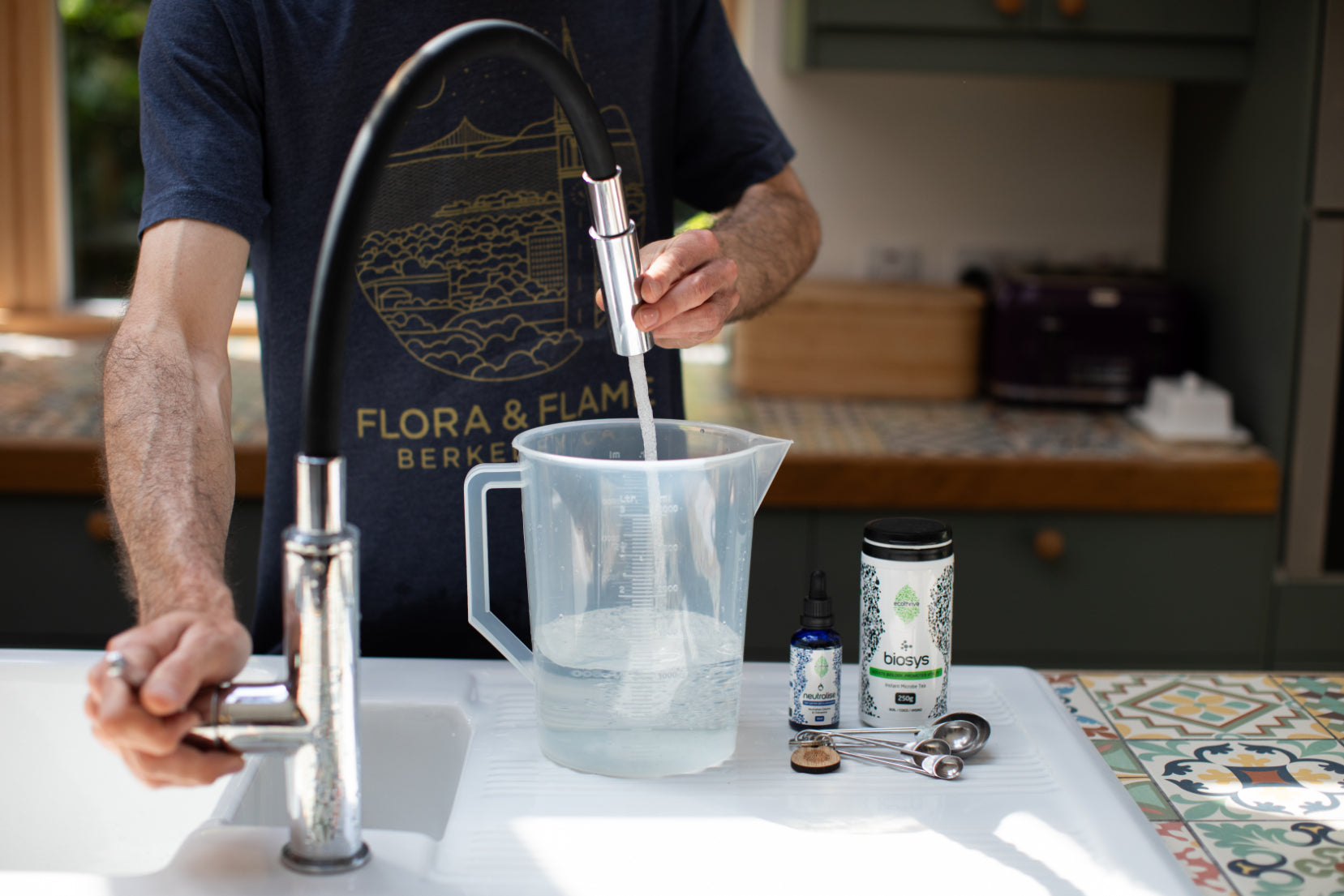
- Fill your watering can or tank with water from your tap
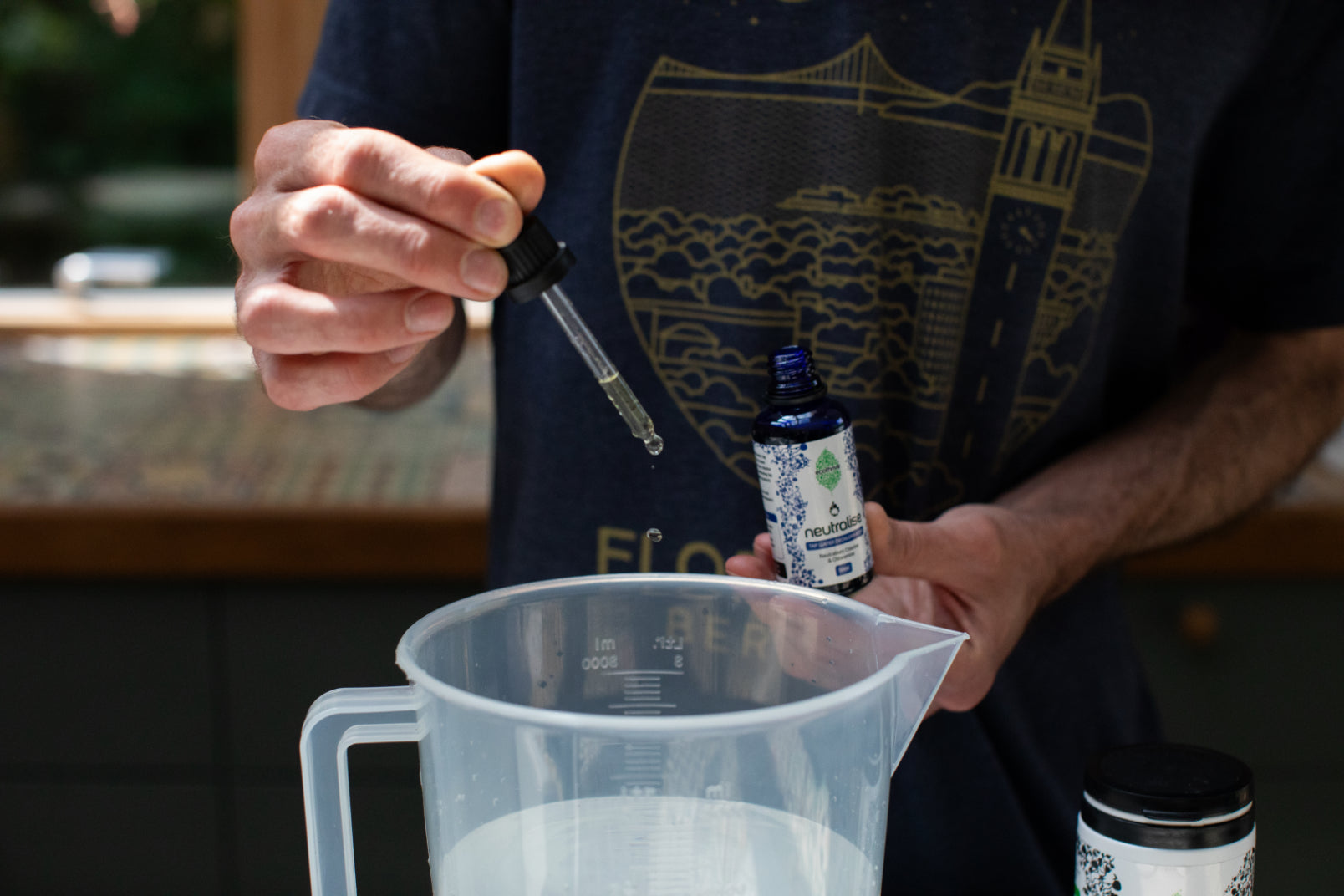
- Add 1 drop per litre of water
- Give it a quick stir

- For larger tanks use 1ml per 20 litres of water
- Give it a quick stir
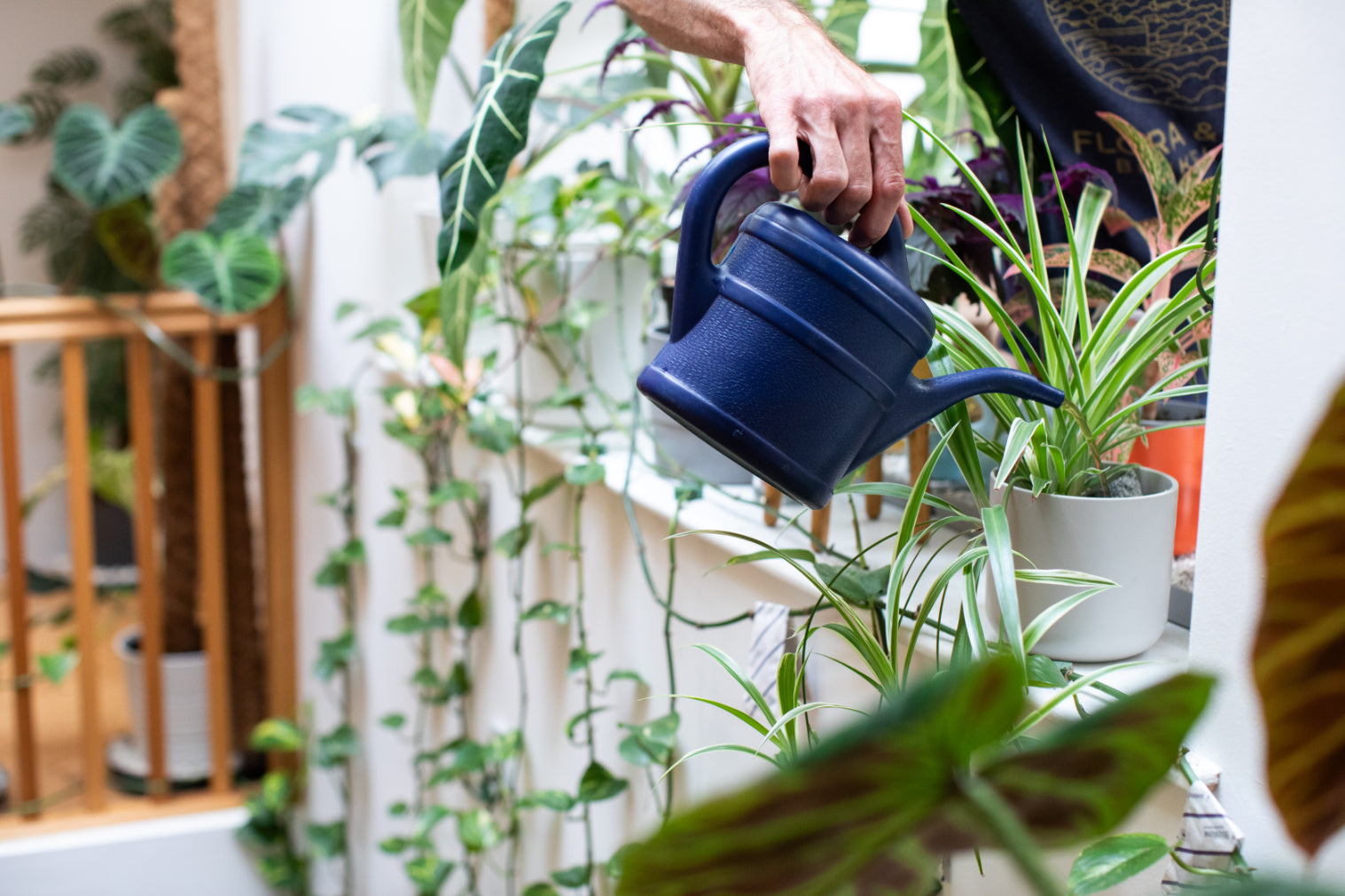
- No need to wait - you can use it straight away
- Alternatively use the water to make up your nutrient solution or compost tea
- Fill your watering can or tank with water from your tap
- Add 1 drop per litre of water
- Give it a quick stir
- For larger tanks use 1ml per 20 litres of water
- Give it a quick stir
- No need to wait - you can use it straight away
- Alternatively use the water to make up your nutrient solution or compost tea




FAQ
Why should we be concerned about tap water chlorine for our gardens?
Watering growing media or soil with fresh tap water (or a nutrient solution made with tap water) will kill some of the root zone microbes, mainly at the surface and within the top 1/3rd of the pot. As the water is distributed over this area first, this is where most of the chlorine oxidising occurs and as is passes down through the pores and channels it will reduced into harmless low levels of chloride ions that the plants and microbes can use. Chlorine compounds also antagonise root growth of some plants, studies have shown reduced root growth and plant health in hydroponic lettuce when chloramine is present at typical tap water levels.
Is Tap Water Chlorine Safe for use with Microbial Products?
No. Chlorine and chloramine will make beneficial microbial products much less effective. If making microbial teas such as Biosys, using untreated tap water is a bad idea as the chlorine in the water will antagonise the organisms attempting to be activated in the water. If, like many organic or hydro gardeners, you are trying to culture beneficial microorganisms in your soil, coco or hydro system, it’s best to dechlorinate the water first to give them the best environment possible for growth to flourish.
How much chlorine is in tap water?
In the UK the average amount of total chlorine is 0.5mg/l. This is a target that water companies try to keep, but can it go up to 1mg/l. The world health organisation set a health based guideline of 5mg/L for drinking water. You can purchase a chlorine test kit or digital meter to give you a better idea. We have used and recommend the Hanna Handheld Colorimeters - HI-701 Free Chlorine and HI-711 Total Chlorine. If you have both, you can subtract the Free Chlorine result from the total chlorine result to let the know the combined/bound chlorine - which is predominantly the chloramine content. We have tested the tap water at our offices in Sheffield on multiple occasions at different times of day. We have found the upper total chlorine to be 0.5mg/l, this is usually at peak water use times like early morning and late afternoon, and lower level to be 0.3mg/l. There seems to be a consistent amount of chloramine at 0.2mg/l, and a more variable amount of free chlorine depending on how quickly it's moving through the municipal water supply system.
How much total chlorine will neutralise treat?
Neutralise is formulated to deal with 0.6mg/l of total chlorine (free chlorine and chloramine) when used at 1ml per 20L, or if using the dropper bottle 1 drop per L. Most tap water will have 0.5mg/L total chlorine or less, so Neutralise will deal with the majority of situations. If you have more that 0.6mg/L total chlorine then you can use a double dose, 2 drops or 1 ml per 10L.
How much is one drop from the 50ml Neutralise dropper bottle?
Each drop is consistently 0.05ml (50 microlitres)
How will Neutralise affect my water or nutrient solution?
Neutralise is ideal for treating water before adding microbial products or liquid nutrients, and is suitable for use with any other brand of nutrient or additive. Neutralise will not affect the final conductivity, but is mildly acidic and can reduce the pH of soft tap water by 0.1. If you have moderate or hard tap water you will not notice any effect on pH.
Is a chlorine water filter a better option?
Water filtration is another great way to reduce chlorine compounds. A good quality inline water filter containing granular activated carbon will deal with the majority of free chlorine from tap water, working in the same way as Ecothrive Neutralise–as reduction agent converting chlorine to chloride. Inline carbon filters do not adsorb chlorine or remove chloride. For complete removal you will need a Reverse Osmosis filter. Most compact water chlorine filters do not deal with chloramine effectively. Where chloramines are present you will need either four times as much carbon in the filter, a pre-filter containing KDF media and/or surface enhanced ‘catalytic carbon’. More detailed info about activated carbon for water filtration can be found inthis article.
What is the shelf life of Ecothrive Neutralise after opening?
Ecothrive Neutralise, when stored correctly in a cool, dark place, typically has a shelf life of up to two years after opening. Make sure the cap is tightly sealed after each use to maintain its efficacy.
Why has my Neutralise turned yellow?
Don’t worry, a bit of discolouration is normal. When exposed to heat, light and air, the liquid will turn yellow and eventually orange. You can still use it and it won’t hurt your plants. It will become less effective the darker it becomes though. If your Neutralise is very dark you may need to increase the dosage.
Is there an optimal temperature for storing Ecothrive Neutralise to maintain its efficacy?
The optimal storage temperature for Ecothrive Neutralise is between 15°C and 25°C (59°F and 77°F). Extreme temperatures should be avoided to maintain product stability.
Can Ecothrive Neutralise be used in combination with other Ecothrive products like Bio-Blend and Life-Cycle?
Absolutely! Ecothrive Neutralise is highly recommended for use with the entire Ecothrive product range, including Bio-Blend and Life-Cycle.
How does the use of Ecothrive Neutralise impact the beneficial microbial life in compost teas?
Ecothrive Neutralise removes chlorine and chloramine, which can harm beneficial microbes. By using Neutralise, you ensure that the microbial life in compost teas thrives and benefits your plants.
What makes Ecothrive Neutralise a better solution than traditional dechlorination methods?n
Traditional methods can be time-consuming and less reliable. Ecothrive Neutralise works instantly to remove chlorine and chloramine, ensuring immediate water safety for your plants.
Can Ecothrive Neutralise be used for plants at any stage of growth, including seedlings?
Yes, Ecothrive Neutralise is completely safe to use for plants at all stages of growth and is particularly effective with seedlings and cuttings.
Can Ecothrive Neutralise be used in aquaponics or with sensitive fish species?
Ecothrive Neutralise is safe for aquaponics as it uses Vitamin C to neutralise chlorine, a method that is non-toxic to fish.
What is the impact of Ecothrive Neutralise on the pH of nutrient solutions over time?
Ecothrive Neutralise can slightly lower the pH of nutrient solutions due to its mild acidity. However, this effect is minor and can easily be adjusted to maintain the desired pH level.
If chlorine levels in my water are below 0.5mg/l, should I still use Ecothrive Neutralise?
While your water’s chlorine levels are on the lower end of the scale, using Ecothrive Neutralise can still be beneficial, particularly if you're cultivating sensitive varieties or using beneficial microbial products.
Is Ecothrive Neutralise safe to use in small enclosed spaces, like indoor grow tents or greenhouses?
Yes, Ecothrive Neutralise is completely safe to use in enclosed spaces.
